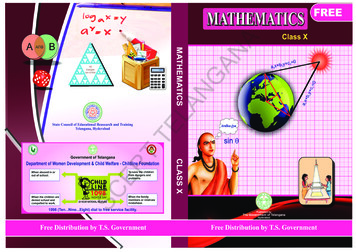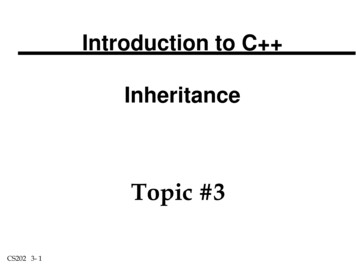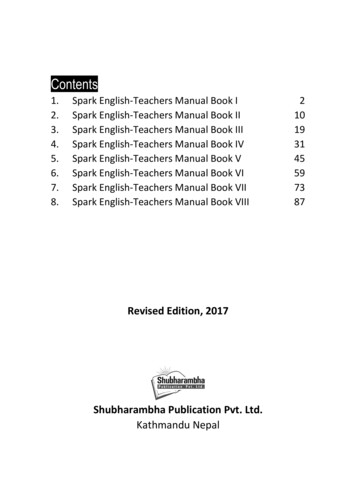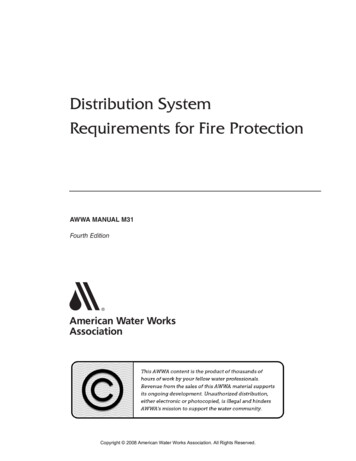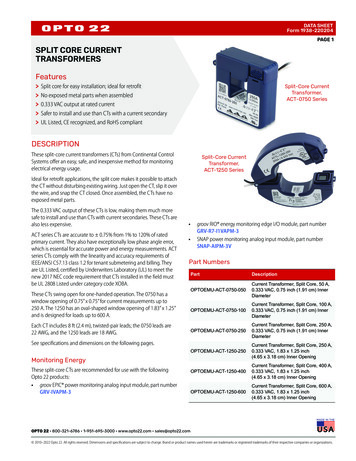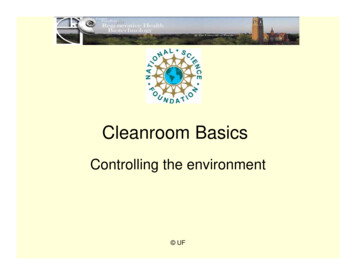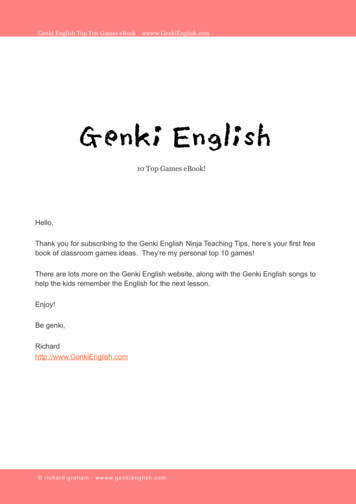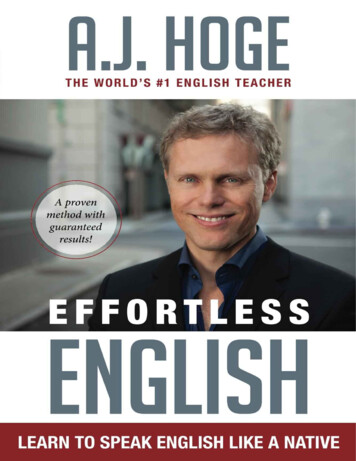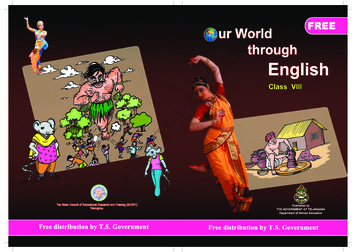
Transcription
TERSCAANNGTELA
DayEgg and SambarVegetablesDal and Green leavesEgg and SambarVegetablesDal and Green leavesFood Norms :Sl.No.Upper Primary (VI - VIII)QuantityProteinCalories(in gms.)content (in gms.)Food item1Food Grains (Wheat/Rice)2150510Pulses301003Vegetables75304Oil & Fat7.5555Any other item [Egg/Banana]Twice aWeek1603.491.164–412TotalERCentralUpper PrimaryState12TIII. Cooking cost w.e.f. 01-04-2012 Age-wise Height and Weight for Boys and TuesdayWednesdayThursdayFridaySaturdayII.ANMenu :TELAI.AMid Day Meal SchemeUpper Primary Classes (VI - VIII)Age inyearsAge-wise Height and Weight for Boys and .2148.033.538.7
AClass VIIIANOur World through EnglishChief Production Officer:NGTEXTBOOK DEVELOPMENT & PUBLISHING COMMITTEESri A. Satyanarayana ReddyDirector, SCERT, Hyderabad.:Sri B. SudhakarTELAChief Production OrganiserDirector, Govt. Textbook Press,Hyderabad.Organising Incharge:Dr. Nannuru Upender ReddyProf. & Head, Curriculum and TextbooksDepartment, SCERT, Hyderabad.Ms. Charu Sinha, I.P.S.,Director, ACB, Telangana,Hyderabad.SCERTAdvisor - Gender Sensitivity :and Child Sexual AbusePublished byThe Government of Telangana, Hyderabad.Free distribution by T.S. Government 2019-20i
AAN Government of Telangana, Hyderabad.NGFirst Published 2013New Impressions 2014, 2015, 2016, 2017, 2018, 2019All rights reservedTELANo part of this publication may be reproduced, stored in aretrieval system, or transmitted, in any form or by any meanswithout the prior permission in writing of the publisher, nor beotherwise circulated in any form of binding or cover other thanthat in which it is published and without a similar conditionincluding this condition being imposed on the subsequentpurchaser.The copyright holder of this book is the Director of SchoolEducation, Hyderabad, Telangana.SCERTThis book has been printed on 70 G.S.M. MaplithoTitle Page 200 G.S.M. White Art CardFree Distribution by T.S. Government 2019-20Printed in Indiaat the Telangana Govt. Textbook Press,Mint Compound, Hyderabad,Telangana.iiFree distribution by T.S. Government 2019-20
ATextbook Development CommitteeANEnglish - Class VIIIMembersTELANGSri M. Chakradhar, S.A., ZPHS, Mudakpally, Nizamabad Dist.Sri G. Sreenivasa Rao, S.A., ZPHS, Kankipadu, Krishna Dist.Sri K. Nagendra, S.A., ZPHS, Kanukur, Ananthapur Dist.Smt B. Asha Rani, S.A.,ZPHS, Neredmet, R.R. Dist.Sri M. Kishan Reddy, Staff Tutor., ELTC., Govt. DIET., Adilabad Dist.Smt K. Sudha, Officer- in-Charge, ELTC, DIET, Neredmet, Hyderabad.Smt K. Lavanya, Staff Tutor, ELTC, DIET, Neredmet, Hyderabad Dist.Sri G. Srinivasa Rao, S.A., ZPSS, Gowthampur, KhammamDist.Smt G. Rajanikantha Kumari, Tutor, DCE, Guntur Dist.Member CoordinatorsSri M. Raghuram, S.A., ZPHS, Manikonda, Mahabubnagar Dist.Sri K. Srinivas Reddy, S.A., ZPSS, Kasimdevipet, Warangal Dist.Chief CoordinatorDr. P. Jani Reddy, Lecturer, DIET, Vikarabad, Ranga Reddy Dist.AdvisorsSCERTDr. D. Kanaka Durga, Rtd. Prof. Osmania University, Hyderabad.Dr. D. Vasundara, Principal, Govt. Degree College,Shadnagar, Mahabubnagar.Miss. Saloni Jain, Vidya Bhavan Society, Udaipur,Rajasthan.EditorsDr. Amrit Lal Khanna, ELT Consultant, Rtd. Associate Prof., University of Delhi.Dr. K. N. Anandan, Linguist and ELT Consultant, Kerala.Dr. P. K. Jayaraj, Faculty, RIESI, Bengaluru.Chief EditorDr. Rama Kant Agnihotri, Rtd. Professor, University of Delhi.IllustratorsSri Syed. Hashmatullah, DM, GHS Kazipet (Jageer), Warangal Dist.Sri J. Venkata Swamy, SA, Govt High School, Farooq Nagar, Mahabubnagar Dist.Sri K. Ramana Murthy, BFA, Mahabubnagar.Layout DesignSri Kurra Suresh Babu, B.Tech,. M.A, M.Phil (Journalism).Free distribution by T.S. Government 2019-20iii
APrefaceANThe State Council of Educational Research and Training has developed the StateCurriculum Framework - 2011 and Position Papers in tune with the National CurriculumFramework - 2005 and the Right to Education Act - 2009. Accordingly a new set of textbookshas been designed to be introduced in a phased manner. In the year 2012-13, the first of thisseries of textbooks has been developed for classes I, II, III, VI, and VII. In the year 201314 for the remaining classes IV, V, VIII and IX textbooks have been developed. Practisingteachers have been involved in the production of the books along with the state level andnational level experts.TELANGHitherto, English was introduced in Non-English Medium Schools in class III. The StateGovernment introduced English for the first time in class I in 2011-12 in all Non-EnglishMedium Schools also. In the year 2012-13, English has been introduced in class II in allNon-English Medium Schools. With this, all classes from I to X will have English as one ofthe subjects, irrespective of the medium of instruction. Therefore, in order to have parityamong students of English and non- English medium, a common English Textbook is introducedin all media from June 2012. Moreover, since IT enabled learning, multilingualism, and languageacross the curriculum would greatly enhance the child's learning, it would not be a problemfor the non- English medium child to learn English as effectively as the child in English mediumdoes. This single textbook norm is already in practice in many states including Tamilnadu,Bihar, and Kerala. Further, students of all media have a common English Textbook atIntermediate level in our state.This textbook, “Our World through English” class VIII, is an integrated one in thesense it has The Main Reader component, The Supplementary Reader component and TheWorkbook component interwoven into a single textbook. Hence, these components arefound in each and every unit. The language skills like listening, speaking, reading, and writingare integrated in the larger context of the themes as suggested in NCF - 2005. The activitiesare so designed as to ensure the holistic treatment of language.ERTInclusion of Gender Sensitivity and Child Sexual Abuse in School Text Books publishedby School Education Department with support of UNICEF are taken up to ensure protectionof children through various interventions like personal safety rules, gender sensitivity, childsexual abuse, self esteem and life skills. In these areas safety mechanisms and laws related tochild protection are taken care of. Hence, the teachers must know about these things andbring awareness among all the stakeholders.The main aim of teaching English is to help learners evolve themselves as independentusers of English. I hope this textbook will help teachers and students achieve this by makingthe teaching-learning process effective.SCI thank all the institutions and experts at the state and national level, the members of theTextbook Production and Development Committees, the staff members of the SCERT, T.S,Hyderabad and all others who have contributed directly or indirectly for the successfulproduction of this textbook.Any suggestions for the improvement of this book are welcome.12-11-2012HyderabadDirector,SCERT, HyderabadivFree distribution by T.S. Government 2019-20
ContentsReadiness ProgrammeBridging gap activitiesFamilyA. The Tattered BlanketB. My Mother (Poem)C.A Letter to a FriendPage No.JuneJune-JulyNG1SyllabusCoverageANUnit ThemeACONTENTS1-14A. Oliver Asks for MoreB. The Cry of Children (Poem)C. Reaching the UnreachedJuly15-303. HumanityA. The Selfish Giant I (One act play)B. The Selfish Giant II (One act play)C. The Garden Within (Poem)August31-48A. The Fun They HadB. Preteen Pretext (Poem)C. The Computer Game (One act play)September49-685. Education andCareerA. The Treasure Within (Part I)B. The Treasure Within (Part II)C. They Literally Build the NationOctoberNovember69-846. Art and CultureA. The Story of IkatB. The Earthen Goblet (Poem)C. Maestro with a MissionDecember85-1047. WomenEmpowermentA. Bonsai Life (Part I)B. Bonsai Life (Part II)C. I Can Take Care of MyselfJanuary105-1228. GratitudeA. Dr. Dwarakanath KotnisB. Be Thankful (Poem)C. The Dead RatFebruary123-141SCERT4. Science andTechnologyTELA2. Social IssuesAppendices142-152Listening Texts142-146About the Textbook and Assessment Procedures147-152Free distribution by T.S. Government 2019-20v
AANACKNOWLEDGEMENTSNGThe State Council of Educational Research and Training,Telangana is most grateful to the following for their valuablecontributions in the development of this book - ProfessorR.K.Agnihotri, Dr.A.L.Khanna, Dr. K.N.Anandan and Dr. P.K. Jayaraj.The Council also thanks the following authors, copyright holdersfor permission to use stories, articles, and poems included in thisbook.TELAThe Tattered Blanket by Dr. Sherrif; The Cry of the Childrenpoem from www.classiclit.about.com; Reaching the Unreached fromwww.ilo.org; The Fun They Had by Isaac Asimov; The ComputerGame by Steven Otfinoski; Preteen Pretext by Linda Ann Nickerson;Bonsai Life by Katha New Delhi; The Treasure Within from theResourse Centre, Valley School, Bangalore; They Literally Build theNation an article from The Hindu written by S.S.Rao; The SelfishGiant by Ryan Taylor; The Garden Within by Celia Borrell; Maestrowith a Mission by Andavilli Satyanarayana; The Story of Ikat by Dr.B. Shyama Sundari; The Dead Rat story by P.C. Roy.SCERTIt has not been possible to trace the copyright in all the cases.The publishers apologise for any omissions and would be glad to hearfrom any such unacknowledged copyright holders.viFree distribution by T.S. Government 2019-20
AOUR NATIONAL ANTHEMJana-gana-mana-adhinayaka, jaya rathaAN- Rabindranath -VangaUchchhala-Jaladhi-taranga.TELATava shubha name jage,Tava shubha aasisha mage,Gahe tava jaya gatha,Jana-gana-mangala-dayaka jaya heBharata-bhagya-vidhata.Jaya he, jaya he, jaya he,SCERTJaya jaya jaya, jaya he!PLEDGE- Pydimarri Venkata Subba Rao“ India is my country. All Indians are my brothers and sisters.I love my country, and I am proud of its rich and varied heritage.I shall always strive to be worthy of it.I shall give my parents, teachers and all elders respect,and treat everyone with courtesy. I shall be kind to animals.To my country and my people, I pledge my devotion.In their well-being and prosperity alone lies my happiness.”Free distribution by T.S. Government 2019-20vii
Note to the studentsSCERTTELANGANADear Student, As you all know, your English textbook is student-friendly and interactive in nature. The new teaching methods and the activities given in the textbook demand youractive participation. The questions the teacher asks at various stages of learning may have more than oneanswer; You are expected to express your ideas and thoughts freely.What you have to do You learn most of the things through interactions, discussions and sharing; betterlearning takes place when you participate in them actively. Try to understand the main ideas by guessing the meaning of words and sentences.You may use the glossary given at the end of the text or use a dictionary. Try to identify the features of the text (such as story, essay, poem, etc.) you arereading and share them with your classmates. While working in groups, take turns to share what you could understand, what youcould not understand and the parts you liked the most. Think critically (offer multiple points of view) to answer the questions the teacherasks you. Your teacher will give you a possible writing task (conversation, description,narrative, etc.) after reading a part of the text. Brainstorm the task in the whole classand then attempt it individually and present it before the group /class. After getting further inputs/feedback from your teacher / group, work individuallyto improve your writing. Share your writing with your group to refine it. The project work and the study skills are as important as the other components in aunit. Most of the examination will be text independent. You will get unseen texts toanswer writing tasks relating to language. At the end of each unit you will find a page meant for self assessment. You areexpected to read the statements and respond to them. Since most of the examination will be text independent, the guides and questionbanks may not be of much use to you for your examinations. You can improve your language by interacting in English with your friends andteachers and by reading stories, newspapers, etc. and by listening to and watching,English programmes on TV. If you are not able to express your ideas in English, you can share them in yourmother tongue. Later, collectively decide how to say it in English.Wish you happy learning!viiiFree distribution by T.S. Government 2019-20
AANNGTELAReading A : The Tattered BlanketReading B : My Mother (Poem)SCERTReading C : Letter to a FriendFree distribution by T.S. Government 2019-201
SCERTTELANGANLook at the pictures and answer the questions that follow.AFamily1.What do you observe in the pictures?2.What type of families do we find in our present society? Why?3.Which family do you like? Why?Oral Discourse: Debate - “Small families are happy families”.2Free distribution by T.S. Government 2019-20
ANThe Tattered BlanketAA ReadingWhen he arrived unexpectedly at his home in the countryside in his office car and gotdown at the gate, his mother, who was lying in an armchair on the veranda, made a futileNGattempt to get up.‘Kamala, there is somebody at the gate,’ she said, ‘somebody is in a car.’Kamala, her eldest daughter, a widow, who was sitting huddled up on the thinna on theveranda, her head and ears covered with a thin bath towel, got up reluctantly, walked slowlySCERTTELAto the gate and screwing up her eyes peered into the darkness.Free distribution by T.S. Government 2019-203
She saw a bald, fat, middle-aged man walking in through the gate.‘Kamala, who is it?’ Her mother asked loudly from the veranda.A‘Oh, Gopi!’ She said in her grating voice. ‘Why this sudden unexpected visit?’AN‘Gopi,’ the man said. ‘There was a meeting in Thiruvananthapuram. I just dropped in onmy way back.’‘Who? Kamala, who is it?’ There was a note of alarm in Amma’s voice.NG‘Amma, why are you so scared?’ Kamala, Gopi’s eldest sister, asked her a littleawkwardly. ‘As if you are seeing Gopi for the first time!’‘Amma, it’s me, Gopi,’ he said again.He bent down and brought his face close to her wrinkled cheeks. ‘Amma, it’s me.’TELA‘Gopi? Kamala, I can’t believe it! Has his school closed for vacation?’‘Amma is often like this these days. She doesn’t recognize anybody,’ Gopi’s sisterexplained. ‘But sometimes her memory is quite sharp. Then she asks me if you have sentany letter. I tell her everything is fine with you, Vimala and the kids. What is the point oftelling her that you haven’t written for a year? Poor thing! I wouldn’t dream of making herunhappy.’‘I got a promotion last year. After that I am always on my toes. And there are toursquite often. I don’t get any time to write letters.’T‘Why don’t you ask Vimala to write, or doesn’t she get any time too?’‘What are you mumbling over there?’ Amma said loudly.ER‘I heard somebody coming in a car. Who is it?’‘I told you, it’s Gopi.’‘But Gopi is in Delhi, isn’t he?’‘Yes, Amma, it’s me. I’ve come from Delhi.’SC‘Who did Gopi marry?’ Amma said, suddenly lowering her voice. ‘I mean, what’s hiswife’s name?’‘Don’t say you’ve forgotten her name too. Don’t you remember, Vimala, DistrictCollector Nambiar’s eldest daughter?’ Gopi’s sister said.‘Oh, I forgot the name. Was there a letter from Gopi today?’‘There was. He writes every day.’4Free distribution by T.S. Government 2019-20
‘I’m terribly upset if I don’t get a letter from him every day.’A‘He knows it. That’s why he writes every day.’nothing about what’s going on here, do you?’‘Who is that?’ Amma said again. ‘Who is that in a car?’AN‘Look at the way she talks,’ Gopi’s sister turned to him. ‘Just as I told you. You know‘It’s me,’ Gopi said. ‘I had to come to Thiruvananthapuram. I thought I should drop into see you, Amma.’‘No, it is quite near.’NG‘Who is your Amma? What is her name? Where does she live? Is it far from here?’‘I don’t know how I can bring back her memory’, Gopi’s sister said to him exasperatedly.Gopi placed his briefcase on the thinna. He opened it and pulled out the contents.SCERTTELAClothes, files, a shaving set .Free distribution by T.S. Government 2019-205
‘Do you know my son, Gopi?’ Amma asked him. ‘He is in Delhi a GovernmentAOfficer. He has Kesariyogam . He draws a salary of two thousand five hundred rupees.Do you know him?’AN‘Yes, I know him.’‘Tell him to send me a blanket. There is a cold mist in the mornings. If I catch cold itdoesn’t leave me for a long time. Tell him to send a blanket, won’t you? A red one. I had ablanket, the one he brought for me when he was studying in Madras. It is all tattered now,NGjust a ball of knotted yarn. Tell him to send me a red blanket, will you?’‘I’ll tell him,’ he nodded.‘Please don’t forget to tell him. The mist is not good for me. I think I’ll stretchmyself out for a bit. I have been sitting too long in the armchair. I have a pain in the neck.TELAGopi’s sister put Amma to bed and came back to the veranda.‘You didn’t come to see Amma, did you?’‘Delhi is too expensive. You know I have four children to look after now. I can’t makeboth ends meet with my salary. And one has to keep up one’s status. It will be a great help ifI can raise some money by selling my share of the family property. I came to talk it overwith you.’‘You’ll sell your land and go away with the money. I know you won’t come hereanymore after that.’T‘Don’t say that. I’ll come when I get time.’ER‘Your time!’He saw the irritation on his sister’s face.‘It took you more than five years to find time to come here. Amma is eighty threenow. I don’t think she will pull on much longer. It took you so long to visit her after the lastSCtime.’‘But Amma can’t remember who I am’, he said smiling feebly.‘But do you remember your Amma?’- Written by Kamala Das (Madhavi Kutty)(Translated from Malayalam by K.M.Sherrif)6Free distribution by T.S. Government 2019-20
AAbout the authorNGANKamla Das (1932-2009) is the daughter of the famous Malayalampoet– Balamani Amma and V.M. Nair. She is an internationallyknown poet, short story writer and novelist who writes effortlesslyboth in English and Malayalam. She has received many awards forher literary work. Some of them are Asian Poetry Prize, Kent Awardfor English Writing from Asian Countries, Asian World Prize, Sahitya Academy Awardand Vayalar Rama Varma Sahitya Award .Glossaryfutile (adj)huddled (v):sit out (elevated place on the veranda)TELAthinna (n)reluctantly (adv):unsuccessful:held arms and legs close because of fear or cold:not willing to do somethingscrewing up eyes (v) :narrowing the eyes to look more carefullyon toes (idm):busy, ready to workmumbling (v):speaking unclearly and quietlyexasperatedly (adv) :very annoyedkesariyogam (n)well settled (in Malayalam)T::tornirritation (n):annoyanceERtattered (adj)nComprehensioAnswer the following questions.Why didn’t the mother recognise Gopi? How did he feel?Why do you think Gopi didn’t get anything for his mother?The mother could not remember Gopi. Do you think Gopi remembered his mother?What does it suggest?What is meant by the expression ‘the tattered blanket’?Why didn’t Gopi answer his sister’s question, ‘Do you remember your Amma ?If you were Gopi’s sister, how would you respond to his behaviour ?SC1.2.3.4.5.6.Free distribution by T.S. Government 2019-207
irritationfutilemumblingAll my attempts to make him happy proved .2.It was very cold. So, I in a corner.3.Forced by her parents, Sita took the diploma course.4.What are you ? I can’t hear you.5.The news that he was denied promotion caused to him.NG1.TELAII.Fill in the blanks with the most appropriate words.9 ) the words that are similar in meaning to the underlinedTick (9words.1.2.3.ER4.His mother made a futile attempt to get up.a. barrenb. limitedc. uselessd. emptyIt’s all tattered now.a. spoiledb. oldc. dirtyd. tornThere is a cold mist in the mornings.a. iceb. snowc. fogd. winIt’s just like a ball of knotted yarn.a. very smallb. rounded tightlyc. joinedd. tied.I can’t make both ends meet with my salary.a. earn a lot of moneyb.spend a lot of moneyc. earn just enough moneyd.give all that one hasTI.AVocabulary5.SCGrammarPhrases and Noun Phrases.I.Look at the following sentence from the text and observe theunderlined part.She saw a bald, fat, middle – aged man.8Free distribution by T.S. Government 2019-20Gloss
Discussion :AWhich word in the underlined part is important ?a phrase.ANThe underlined part in the above sentence has more than one word. It is calledThe underlined part ‘a bald, fat middle – aged man’ functions as a Noun Phrase.Here the word ‘man’ is important and all other words add more information to thatword. So it is called a Noun saryaIdentify some more noun phrases from the story and write them below.TELA1) 2) 3)Complete the sentences with noun phrases using the words given in brackets.1. I bought (beautiful/a/umbrella/red).2. We saw in the zoo. (baby/a/elephants/of/couple).3. Our grandfather lives in (big/house/a/stone-built).4. Ramya has (nice/a/sari/silk).WritingTRead the following paragraph, taken from the story.ERDelhi is too expensive. You know I have four children to look after now. I can’tmake both ends meet with my salary. And one has to keep up one’s status. It willbe a great help if I can raise some money by selling my share of the familyproperty. I came to talk it over with you.SCNow, write a short essay on how to keep up family ties despite economicpressures (You may use the hints given below).Impact of economic pressuresLack of time to spend with the familyLack of love and affectionAbsence of healthy human relationshipsFree distribution by T.S. Government 2019-209
AListeningANListen to your teacher making an announcement and answer the followingquestions.What is the announcement about?2.What are the features of Prashanth?3.Where do you generally listen to such announcements?4.Think of some announcements you may make or listen at school.5.What are the other ways to trace the missing persons or things?NG1.TELAStudy SkillsFamily related information.FamilyNuclear FamilyJoint FamilyFather, mother, childrenand their familiesERTFather, mother andchildrenIs yours a nuclear or joint family ?SCNow write a paragraph describing the types of families using the informationgiven in the above tree diagram.Which type of family do you prefer and why?10Free distribution by T.S. Government 2019-20
NGANI cannot remember my mother,only sometime in the midst of my playa tune seems to hover over my playthings,the tune of some song that she usedto hum while rocking my cradle.AMy MotherB ReadingTELAI cannot remember my mother,but when in the early autumn morningthe smell of the shiuli flowers floats in the air,the scent of the morning service in the templecomes to me as the scent of my mother.I cannot remember my mother,only when from my bedroom window I send myeyes into the blue of the distant sky,I feel that the stillness of my mother’s gazeon my face has spread all over the sky.- Rabindranath TagoreTAbout the poetRabindranath Tagore (1861-1941) is popularly known asSCERVishwa Kavi and Gurudev. He was the founder of Shantiniketan,an experimental school. He was awarded the Nobel Prize inliterature for his Gitanjali, the Song of Offerings. Each of hispoems reflects Indian vision and love towards his Mother Land.He is considered the Voice of Indian Heritage and Spiritualism.Glossaryhover (v)shiuli (n)::scent (n):remain in the airsmall, white or orange flowers that bloom inautumnperfume/good smellFree distribution by T.S. Government 2019-2011
AnComprehensioAnswer the following questions.How does the poet feel the presence of his mother?2.What do you understand from the statement – ‘I cannot remember my mother’?3.Does the poem convey sadness? If yes, pick out the suggestive expressions.4.What imagery do you find in each stanza? To which sense does it appeal to you?ImagesSense it appeals to1Mother rocking the cradleNGStanzaand singing a songears2TELA35.AN1.Read the poem ‘My Mother’ again and complete the table.QuestionsStanza 1Stanza 2Stanza 3Who are the persons involved ?Where does the action take place?What is the mother associated with?What is the theme?ER7.We all love our mother, don’t we? We love her because of certain qualities. Thinkand write about her qualities.How would you choreograph the first stanza? (Group work)T6.What settings do you arrange?b.What are the characters and their actions?c.What is the sequence of actions?SCa.Stanza Action of the main characterAction of the supporting team /characters123Each group may choreograph different stanzas of the poem.12Free distribution by T.S. Government 2019-20
C ReadingAA Letter to a FriendANHyderabad.12-11-2012.SCERTTELANGDear Suresh,This is Ramesh. I apologise for not meeting you during your visit to Hyderabad lastweek. Unfortunately, I had a meeting in my office. I remember how we enjoyed our childhooddays in Manikonda village. Every day we played together in our garden. Our family was verybig. There were twelve members in our family. I remember how we played in the moonlight.Our grandma used to give us fruits and biscuits. Our grandpa used to tell us fairy tales,about the princes, warriors and the village boys .Now I am working at Microsoft, a software company, Hyderabad, as a ComputerProgrammer. I am married and we have a child. My wife works at Dell, Hyderabad as aSystem Analyst. You know city life is quite busy. We start in the morning; leave our child atthe baby care centre and come back in the evening with faded faces. We hardly find time tosit together. How disgusting! We work with computers, think like computers and live likecomputers. We have forgotten our family.I remember how we played gilli-danda, hide and seek and kabaddi. We went forswimming in our local tank every Sunday. Here we live in an apartment where there is noroom to play. Our flat is our world, just like a well for a frog! (The world remains unheeded.)How happy we were in our school! We used to sit in the same row, did all the worktogether and took part in the events. I remember how Padmanabhaiah Sir, our class teacher,appreciated us when we got the first prize in District Science Fair. I remember how wewent on a picnic to Koil Sagar. There we went boating. Our tour to Srisailam was memorable.Still I remember the green hills full of trees that almost touched the sky! I remember theroaring of the Krishna River at the dam. There is nothing here! I wonder at my child’ssilence. He always sits in front of the computer and plays games, never caring for anyone.I remember the happy moments when our uncle visited us. He brought toys and fruitsfor us. Our aunt brought me a new dress for Dasara. How we enjoyed Deepavali! Still Ihear the sound of crackers, I can see the rockets flying into the sky making the night full oflight! Where are those days? My child doesn’t know his uncle or aunt. For him, uncle andneighbour are the same.Sometimes I think of our childhood days. I think of grandparents, uncles, brothers,sisters .We missed them. We missed the joy of the family. We missed their company. We aremissing many things in this busy life.Free distribution by T.S. Government 2019-2013
ANASuresh, I don’t know where those gardens have gone, those fairy tales, those fruits,those words of love and affection . . We have lost our real life in this unreal world.Anyhow I am happy that I have found time to write to you. Please come to me. Let’sremember our childhood days of joy.Your loving friend,Ramesh.noComprehensiHow did Suresh and Ramesh spend their childhood?Why did Ramesh’s family move to the city?What change did you observe in Ramesh?Do you think Ramesh is happy in the city? Why?What made Ramesh write to Suresh?TELA1.2.3.4.5.NGAnswer the following questions.Project WorkObserve any five families in your neighbourhood and draw your conclusions,advantages and disadvantages of living in a joint / nuclear family.Self AssessmentHow well have I understood this unit?9 ) in the appropriate box.Read and tick (9IndicatorsYes Somewhat NoSCERTI read and understood the text :A. The Tattered BlanketB. My MotherC. Letter to a FriendI was able to do the exercises given under 'Vocabulary'.I was able to use the Phrases and Noun Phrase.I was able to write a short essay given under ‘Writing’.I was able to write a paragraph describing the types of familiesgiven under 'Study Skills'.I was able to understand and choreograph the poem ‘My Mother’.I listened to and understood ‘An Announcement on the Radio’ andanswered the questions given under 'Listening'.I was able to complete the ‘Project Work’.14Free distribution by T.S. Government 2019-20
AANNGTELAReading A : Oliver Asks for MoreReading B : The Cry of Children (Poem)SCERTReading C : Reaching the UnreachedFree distribution by T.S. Government 2019-2015
ASocial IssuesNGANRead the saying given below and answer the questions that follow.TELAHome is the happiest place inERTthe world.What does the sentence mean ?SC1.2.Do you agree / disagree with the view expressed in the saying? Why?3.Do you like your home? Why?Oral Discourse: Talk on - “The feelings of a homeless child.”16Free distribution by T.S. Government 2019-20
ANOliver Asks for MoreAA ReadingNG(This is an extract from the novel ‘OLIVER TWIST’ written by the British novelistCharles Dickens (1812- 70). It is the story of an orphan boy named Oliver, who
Government introduced English for the first time in class I in 2011-12 in all Non-English Medium Schools also. In the year 2012-13, English has been introduced in class II in all Non-English Medium Schools. With this, all classes from I to X will have English as one of
